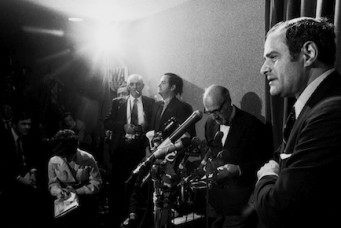Death of the Blogosphere
Egyptian bloggers, writing and reporting on the January 25 uprising, suddenly went offline after 2015. Why and where are they now?
Sometime in 2015, some of the most active Egyptian bloggers fell silent and stopped posting on their blogs. Some were jailed and others reinvented themselves as analysts and pundits. More than just bloggers, they had been a generation of young activists whose impetus to report on fraught Egyptian politics and disrupt official media narratives during and following the 2011 uprising seems largely to have petered out. What happened to them and where are they now?
Nadine El Sayed, professor of journalism at the American University in Cairo, has spent the last five years studying the demise of the blogosphere in Egypt. Out of the twelve blogs El Sayed closely monitored, seven turned up completely inactive in 2015 while the remaining five only showed one or two posts every year. Many of the bloggers became columnists and commentators in major media organizations or moved into politics, where they had to water down their opinions in fear of censorship and retribution by the state or the publishers. In El Sayed’s own words: they went “mainstream,” she said in an interview with the Cairo Review.
El Sayed was interested in knowing why many of these bloggers were not able to financially sustain their blogs. Many, she found, favored getting a regular pay slip from their new employers over growing and monetizing their blogs through selling advertisements or aggregating content with major news outlets. They had started blogging in the early 2000s out of passion and a desire to bring out the truth.
Now in their 30s and handling family responsibilities, bloggers found that taking paid positions offered them the security and financial stability they needed. “You have to remember that when these people were at the peak of their activity in 2006–2007, they were in their early 20s,” El Sayed said. “They grew out of that phase and started shifting into different identities.”
Ultimately, many bloggers sacrificed their independence in exchange for stability. It seems a likely choice in a country that has taken considerable steps to hamper remaining dissident voices. More than 400 websites are now blocked in Egypt. Public gatherings of ten people or more can be shut down as illegal protests, and many are still being arrested for voicing even the slightest opposition.
Some of the bloggers El Sayed writes about in her study have been dealt similar fates. Alaa Abd El-Fattah, once a software developer turned activist and blogger, is serving a five-year sentence while Samira Ibrahim and some other bloggers have been fired from their jobs for writing their opinions.
But the fight has not ended for many of them. El Sayed remembers a pivotal conversation with a source, who chose to remain anonymous: “He said, ‘I realize that I have to tone down my voice, but at the same time it is either that my message will not get to the masses at all or it will get to the masses, but in a more toned-down voice. So, which will it be?’” It is a decision that for El Sayed shows that even if Egypt’s most outspoken bloggers have been quieted, they will still not be completely silenced.





